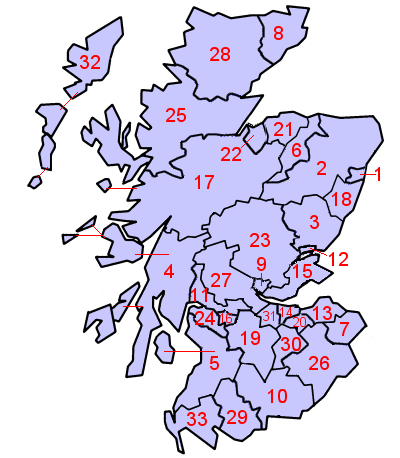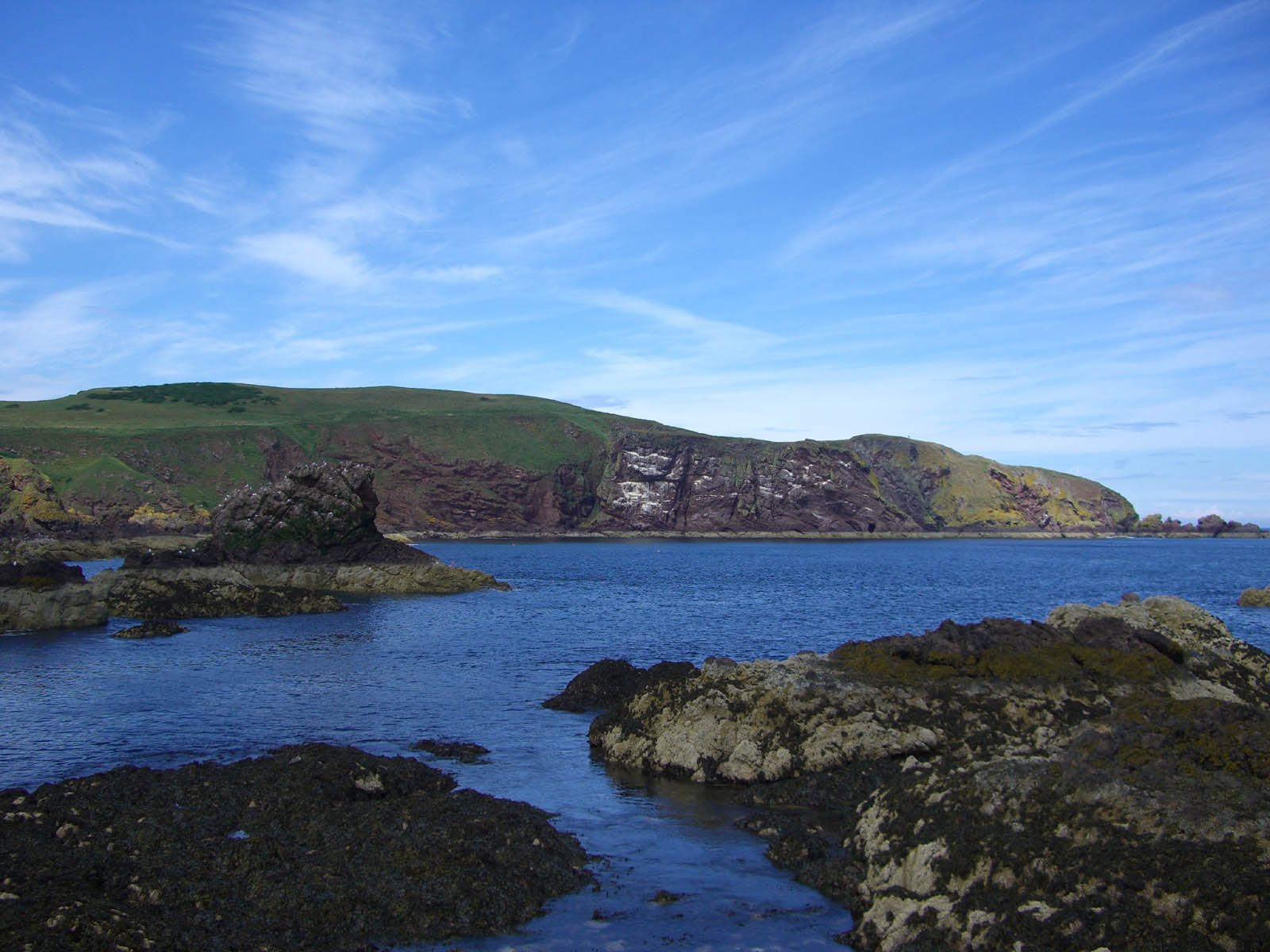|
Lord Lieutenant Of Berwickshire
This is a list of people who have served as His Majesty's Lord-Lieutenant for the County of Berwick. List of officeholders * Alexander, Earl of Home 17 March 1794 – 20 October 1841 * James, Earl of Lauderdale 2 November 1841 – 22 August 1860 * David, Lord Marjoribanks 10 December 1860 – 19 June 1873 * James, Duke of Roxburghe 9 July 1873 – 23 April 1879 * Charles, Earl of Home 20 June 1879 – 1890 * Frederick, Earl of Lauderdale 4 March 1890 – 1901 * Lieutenant-Colonel George, Lord Binning 5 January 1901 – 12 January 1917 * Captain Charles Barrington Balfour 30 May 1917 – 31 August 1921 * Colonel Charles Hope 23 January 1922 – 25 August 1930 * Charles, Earl of Home 8 December 1930 – 11 July 1951 * George, Earl of Haddington 11 January 1952 – 1969 * Lieutenant-Colonel Sir William Bertram Swan 13 October 1969 – 1989 * Major-General Sir John Swinton of Kimmerghame 10 October 1989 – 2000 * Major Alexander Richard Trotter 20 September 2000 – 20 ... [...More Info...] [...Related Items...] OR: [Wikipedia] [Google] [Baidu] |
Lord-Lieutenant
A lord-lieutenant ( ) is the British monarch's personal representative in each lieutenancy area of the United Kingdom. Historically, each lieutenant was responsible for organising the county's militia. In 1871, the lieutenant's responsibility over the local militia was removed. However, it was not until 1921 that they formally lost the right to call upon able-bodied men to fight when needed. Lord-lieutenant is now an honorary titular position usually awarded to a retired notable person in the county. Origins England and Wales Lieutenants were first appointed to a number of Historic counties of England, English counties by King Henry VIII in the 1540s, when the military functions of the sheriffs were handed over to them. Each lieutenant raised and was responsible for the efficiency of the local militia units of his county, and afterwards of the yeomanry and volunteers. He was commander of these forces, whose officers he appointed. These commissions were originally of tempora ... [...More Info...] [...Related Items...] OR: [Wikipedia] [Google] [Baidu] |
Charles Douglas-Home, 13th Earl Of Home
Charles Cospatrick Archibald Douglas-Home, 13th Earl of Home, (29 December 1873 – 11 July 1951), styled Lord Dunglass between 1881 and 1918, was a British peer and banker. He served as Lord Lieutenant of Berwickshire from 1930 to 1951. He was the father of British prime minister, Sir Alec Douglas-Home. Life He was born on 29 December 1873, the only son of Charles Douglas-Home, 12th Earl of Home and Maria Grey, the daughter of Captain Charles Conrad Grey, RN (and great-niece of Charles, 2nd Earl Grey). Styled Lord Dunglass, he was educated at Eton College and at Christ Church, Oxford. He subsequently served as an officer in the 3rd and 4th Battalions, the Cameronians and as Colonel in the Lanarkshire Yeomanry and was awarded the Territorial Decoration. He fought in the First World War, where he took part in the Gallipoli Campaign and was mentioned in dispatches. He succeeded to his father's earldom and subsidiary titles on 30 April 1918. He was the Governor of the Brit ... [...More Info...] [...Related Items...] OR: [Wikipedia] [Google] [Baidu] |
Lord Lieutenancies Of Scotland
The lieutenancy areas of Scotland are the areas used for the ceremonial lord-lieutenants, the monarch's representatives, in Scotland. The lord-lieutenants' titles chosen by the monarch and his legal advisers are mainly based on placenames of the traditional counties of Scotland. In 1794 permanent lieutenancies were established by Royal Warrant. By the Militia Act 1797 (37 Geo.3, C.103), the lieutenants appointed "for the Counties, Stewartries, Cities, and Places" were given powers to raise and command County Militia Units. While in their lieutenancies, lord lieutenants are among the few individuals in Scotland officially permitted to fly a banner of the Royal Arms of Scotland, the "Lion Rampant" as it is more commonly known. Lieutenancy areas are different from the current local government council areas and their committee areas. They also differ from other subdivisions of Scotland including sheriffdoms and former regions and districts. The Lord Provosts of Aberdeen, Dundee ... [...More Info...] [...Related Items...] OR: [Wikipedia] [Google] [Baidu] |
Order Of Precedence In Scotland
The order of precedence in Scotland was fixed by Royal Warrant in 1905. Amendments were made by further Warrants in 1912, 1952, 1958, 1999 to coincide with the establishment of the Scottish Parliament and Scottish Government and most recently in 2012. The relative precedence of peers of Scotland is determined by the Act of Union 1707. Gentlemen Royalty, high officials, et al. Royal family *The King *The Lord High Commissioner to the General Assembly of the Church of Scotland (Lord Hodge) *The Duke of Rothesay *The Earl of Dumbarton *Prince George of Wales *Prince Louis of Wales *Archie Mountbatten-Windsor *The Earl of Inverness *The Earl of Forfar *The Earl of Snowdon *The Lord Culloden *The Earl of St Andrews *Prince Michael of Kent High Officers of State, et al. Nobility, et al. Dukes, et al. Marquesses, et al. Earls, et al. Judiciary, et al. #Lord Justice General (Lord Carloway) #Lord Clerk Register ( The Lord Mackay of Clashfern) #Lord Advocate (''Office held by ... [...More Info...] [...Related Items...] OR: [Wikipedia] [Google] [Baidu] |
Alexander Richard Trotter
Alexander is a male given name. The most prominent bearer of the name is Alexander the Great, the king of the Ancient Greek kingdom of Macedonia who created one of the largest empires in ancient history. Variants listed here are Aleksandar, Aleksander and Aleksandr. Related names and diminutives include Iskandar, Alec, Alek, Alex, Alexandre, Aleks, Aleksa and Sander; feminine forms include Alexandra, Alexandria, and Sasha. Etymology The name ''Alexander'' originates from the (; 'defending men' or 'protector of men'). It is a compound of the verb (; 'to ward off, avert, defend') and the noun (, genitive: , ; meaning 'man'). It is an example of the widespread motif of Greek names expressing "battle-prowess", in this case the ability to withstand or push back an enemy battle line. The earliest attested form of the name, is the Mycenaean Greek feminine anthroponym , , (/Alexandra/), written in the Linear B syllabic script. Alaksandu, alternatively called ''Alakasandu'' or ' ... [...More Info...] [...Related Items...] OR: [Wikipedia] [Google] [Baidu] |
John Swinton (British Army Officer)
Major-General Sir John Swinton of Kimmerghame, (21 April 1925 – 4 October 2018) was a British Army officer who served as Major-General commanding the Household Division and General Officer Commanding London District from 1976 until his retirement in 1979. He was the father of actress Tilda Swinton. Early life Swinton was the son of Brigadier Alan Henry Campbell Swinton of Kimmerghame, MC (born 15 March 1896) and wife, Mariora Beatrice Evelyn Rochfort Alers-Hankey (born 1900). A member of the Swinton family, his paternal grandfather was Scottish politician and officer-of-arms George Swinton. He was educated at Harrow School, London. Military career Swinton was commissioned into the Scots Guards on 24 March 1944, and was twice wounded towards the end of the Second World War.T ... [...More Info...] [...Related Items...] OR: [Wikipedia] [Google] [Baidu] |
William Swan (British Army Officer)
Lieutenant-Colonel Sir William Bertram Swan (19 September 1914 – 4 December 1990) was a British Army officer and agriculturalist. Early life Swan was eldest son of Nichol Allan Swan and Anne Gardener Keir. He was educated at Edinburgh Academy and entered farming in 1933. Military career On 13 May 1939 he was commissioned into the King's Own Scottish Borderers of the Territorial Army. He served with the 4th Battalion of the regiment in the Battle of France. Between 1942 and 1945 Swan was seconded to the British Indian Army and served with the No. 1 Mule Training Regiment in Jullundu. Following the end of the Second World War, Swan returned to farming in Scotland. He served as Army Cadet Force County Commandant for Roxburgh, Berwick and Selkirk from 1955 to 1973 and was granted the rank of lieutenant-colonel. He was a colonel in the Lowlands Territorial Army from 1983 to 1986. Agriculture Swan was President of the National Farmers Union of Scotland from 1961 to 1962 and was Pr ... [...More Info...] [...Related Items...] OR: [Wikipedia] [Google] [Baidu] |
George Baillie-Hamilton, 12th Earl Of Haddington
George Baillie-Hamilton, 12th Earl of Haddington (18 September 1894 – 17 April 1986), was a Scottish peer from 1917 to 1986. Life Haddington was the son of Brigadier-General George Baillie-Hamilton, Lord Binning and Katherine Salting (d.1952). He was educated at Eton and then at Sandhurst. He was on the staff of Governor General of Canada and was awarded the Military Cross during the First World War. He succeeded his grandfather in the earldom in 1917. In the Second World War he was a Wing Commander in the RAFVR. He was Lord Lieutenant of Berwickshire from 1952 to 1969. In 1957 he became the first president of the Georgian Group of Edinburgh, later the Architectural Heritage Society of Scotland. He lived at Tyninghame House in East Lothian, where he and his wife created and replanted several formal gardens. His daughter, Lady Mary, was one of Queen Elizabeth II's maids of honour at the coronation in 1953. Military career He fought in the First World War, as a captain in ... [...More Info...] [...Related Items...] OR: [Wikipedia] [Google] [Baidu] |
Charles Hope (Lord Lieutenant Of Berwickshire) (born April 1945)
{{DEFAULTSORT:Hope, Charles ...
Charles Hope may refer to: *Charles Hope, 1st Earl of Hopetoun (1681–1742), Scottish nobleman *Charles Hope-Weir (1710–1791), politician, son of the 1st Earl of Hopetoun *Charles Hope, Lord Granton (1763–1851), Scottish politician and judge *Charles Hope (politician) (1808–1893), Lieutenant Governor of the Isle of Man, 1845–1860 *Charles Hope (British Army officer) (1768–1828), Major General and politician *Charles Hope (American football) (born 1970), American football player *Charles Hope, 3rd Marquess of Linlithgow (1912–1987) *Charles Hope (art historian) Charles Archibald Hope (born April 1945) is a British art historian who was director of The Warburg Institute The Warburg Institute is a research institution associated with the University of London in central London, England. A member of th ... [...More Info...] [...Related Items...] OR: [Wikipedia] [Google] [Baidu] |
County Of Berwick
Berwickshire ( gd, Siorrachd Bhearaig) is a historic county, registration county and lieutenancy area in south-eastern Scotland, on the English border. Berwickshire County Council existed from 1890 until 1975, when the area became part of the Borders region, with most of the historic county becoming part of the lower-tier Berwickshire district. Berwickshire district was abolished in 1996, when all the districts in the Borders region merged to become the Scottish Borders council area. The county takes its name from Berwick-upon-Tweed, its original county town, which was part of Scotland at the time of the county's formation in the twelfth century, but became part of England in 1482 after several centuries of swapping back and forth between the two kingdoms. After the loss of Berwick, Duns and Greenlaw both served as county town at different periods. The low-lying part of Berwickshire between the Tweed and the Lammermuirs is known as "the Merse", from an old Scots word for a ... [...More Info...] [...Related Items...] OR: [Wikipedia] [Google] [Baidu] |

